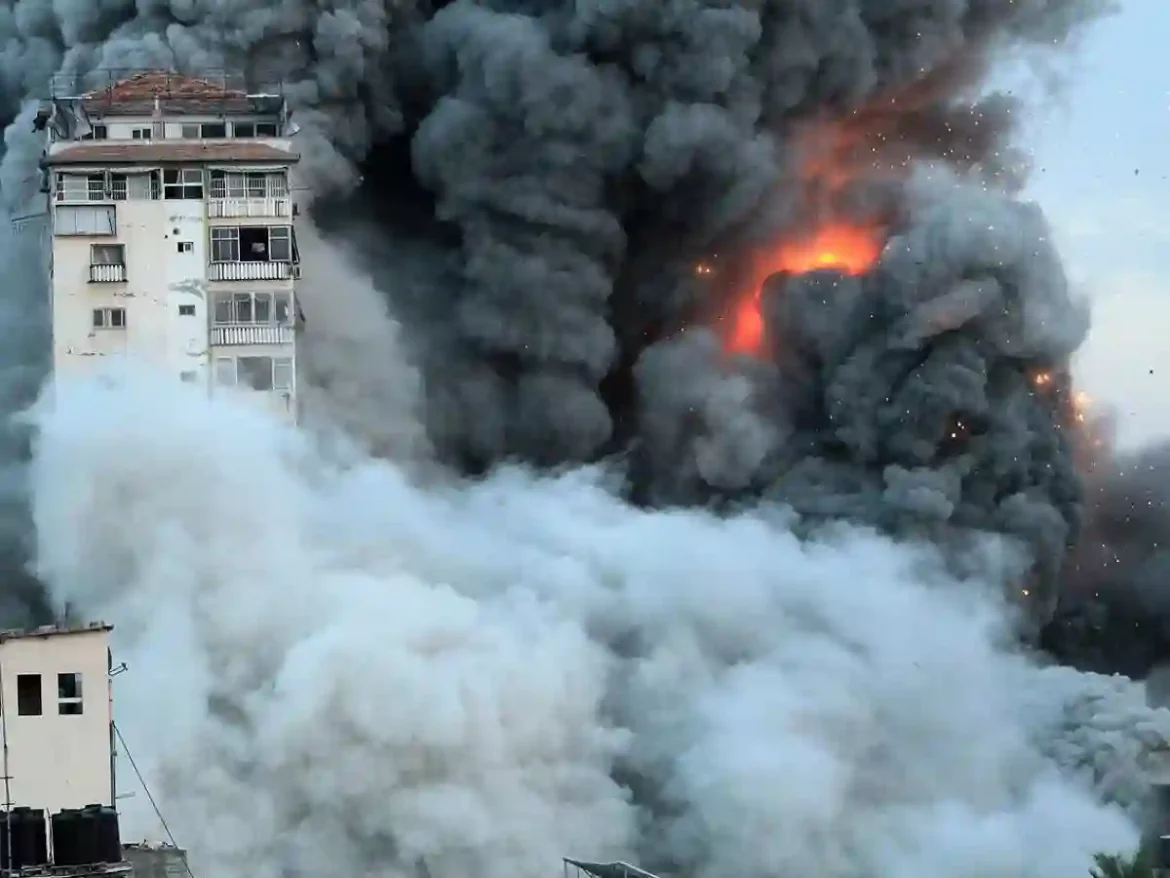On October 7, 2023, the situation in Israel and Gaza took a tragic turn when Hamas launched an unprecedented assault.
Early that morning, militants struck border villages in southern Israel while simultaneously unleashing a massive barrage of rockets across the region.
This attack marked the bloodiest day in Israeli history, resulting in approximately 1,200 fatalities and the abduction of 251 individuals in just the first 24 hours.
Escalation of Conflict
In response to this harrowing attack, the Israel Defense Forces (IDF) swiftly retaliated with airstrikes targeting Hamas positions in the Gaza Strip.
The following day, the Israeli government declared martial law and called up reservists, signaling the seriousness of the situation.
Defense Minister Yoav Galant announced on October 9 that the Gaza Strip would be under blockade, cutting off essential supplies like electricity, fuel, and food.
“We are fighting human animals and we are acting accordingly,” he stated, reflecting the severity of the conflict.
Humanitarian Crisis
As time went on, international pressure mounted, with the United States urging Israel to ease its blockade and allow limited fuel supplies into Gaza.
However, power outages continued to plague the area.
The IDF’s ground operation on October 27 caused mass displacement, pushing civilians toward the southern Gaza Strip, especially to Rafah, which became overwhelmed with around 1.4 million people, including a million refugees from other regions.
Ongoing Operations and Truces
On the night of May 7, 2024, Israel intensified its ground operations in Rafah, seizing control of key checkpoints along the Gaza-Egypt border.
As a result, many refugees were forced to flee yet again.
Throughout the year, the warring parties managed to negotiate only one ceasefire—from November 24 to December 1, 2023—during which Israel released numerous Palestinian prisoners in exchange for 105 hostages held by Hamas.
Despite efforts by international mediators to broker another six-week truce to facilitate discussions for a peaceful resolution, these attempts have thus far been unsuccessful.
The Human Toll
The toll on the civilian population has been staggering.
According to the Palestinian Health Ministry, around 42,000 residents of Gaza lost their lives, and over 96,000 sustained injuries during the ongoing hostilities.
Many others remain unaccounted for, likely trapped under rubble from destroyed buildings.
The conflict forced nearly all Gazans to flee their homes, with many facing multiple displacements.
The UN reported that children have been deprived of education for an entire year, with schools sheltering displaced families being targeted, and health workers and facilities coming under fire.
Humanitarian aid convoys have often been blocked or attacked.
Health and Nutrition Crisis
The damage to civilian infrastructure has also led to alarming health issues, including outbreaks of intestinal and other infectious diseases.
In late August, Israel agreed to temporary pauses in fighting, allowing the World Health Organization (WHO) to vaccinate Palestinian children after polio resurfaced for the first time in 25 years.
Currently, around 2.15 million of Gaza’s 2.25 million residents are facing the threat of starvation, with approximately 1.24 million already experiencing undernourishment.
The conflict has resulted in the destruction of at least 200,000 buildings, leaving many homeless and in dire need of assistance.
Looking Ahead
As the situation continues to evolve, the question remains: what lies ahead for both the people of Israel and Gaza?
The need for a lasting solution and a return to peace is more pressing than ever.
Mine Crypto. Earn $GOATS while it is free! Click Here!!